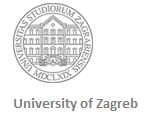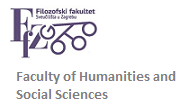Home » 8. i 10. semestar : KNJIŽEVNI KOLEGIJI (Page 3)
Category Archives: 8. i 10. semestar : KNJIŽEVNI KOLEGIJI
American Gothic
Graduate ElectiveAmerican GothicUniversity of ZagrebSpring 2012, 8th and 10th semesterProf. Charles L. Crowcharleslcrow@yahoo.com Thursday 2:00-2:45, A-123Friday 11:00-12:30, A-105 “Who knows what evil lurks in the hearts of men? The Shadow knows.”The Shadow — old time radio show Course requirements: regular attendance and participation in discussion. A paper of about 12 pages, written as a conference […]
Theory and History of the Novel in English
Course title: Theory and History of the Novel in English Instructor: Prof. Borislav Knežević ECTS credits: 6 Status: elective Semester: 2nd and 4th Enrollment requirements: Enrollment in the graduate programme Course description: This course is meant to provide an introduction to the history and theory of the novel in English. Our reading will include novels […]
The History and Paradigms of American Studies 2 (Šesnić, 2013)
Course title: The History and Paradigms of American Studies 2Instructor: Dr Jelena ŠesnićECTS credits: 6Status: electiveSemester: 8th and 9th semester, Spring 2013Enrollment requirements: enrollment in the 8th and/or 10th semesterCourse description: This is a companion course to the History and Paradigms of American Studies 1 which thus continues to examine the changes in the methodology […]
The United States Now
Course title: The United States Now Instructor: Prof. Stipe Grgas ECTS credits: 6 Status: elective Semester: 2 and 4 Enrollment requirements: enrollment in the graduate program Course description: The course will explore the main issues and topics which characterize the present moment of United States reality. The departure point for the course is the contention […]



